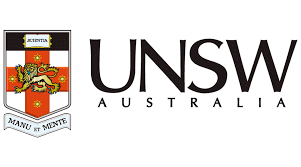Project Overview
Silex’s Q-Si Production Project, which commenced in August 2023, is being undertaken in conjunction with partners, Silicon Quantum Computing Pty Ltd (SQC) and UNSW Sydney (UNSW). The Project’s objective is to establish the first Q-Si Production Plant and to develop the skills and capability to manufacture Q-Si products, produced from Zero-Spin Silicon (ZS-Si) halosilane, in multiple product forms at commercial scale.
In January 2024, Silex announced the expansion of its commercial arrangements with longstanding partner, SQC, in support of the Q-Si Production Project. This included an increase to SQC’s product offtake commitment for Q-Si products and additional funding arrangements that will result in a cash contribution of $4.35m to the Project. The 3.5-year Project is also supported with $5.1m in funding from the Federal Government’s Defence Trailblazer for Concept to Sovereign Capability Program, a strategic partnership between The University of Adelaide and UNSW, via the Department of Education’s Trailblazer Universities Program.
The aim of the Project is to design and construct the first module of the Q-Si Production Plant at the Company’s Lucas Heights facility. It is anticipated that the Plant will produce up to 20kg annually of ZS-Si, which will be converted to Q-Si product forms (gaseous and solid) required by potential customers in the global silicon-based quantum computing industry. A key benefit of the SILEX laser isotope separation technology is its modular nature, allowing for the Production Plant to be scaled-up with more production modules over time, based on market demand and other factors.
ZS-Si is a unique form of isotopically enriched silicon, which is a key enabling material for the fabrication of next generation processor chips that will power silicon-based quantum computers. Until recently, most of the world’s supply of enriched silicon came from Russia, produced with conventional centrifuge technology. The Russian invasion of Ukraine has disrupted this supply, which has given rise to some urgency in establishing alternative supply. Silex aims to provide a secure and resilient alternative source of enriched silicon for users around the world.
Silex will retain ownership of the Q-Si production technology and related Intellectual Property developed through the Project.
